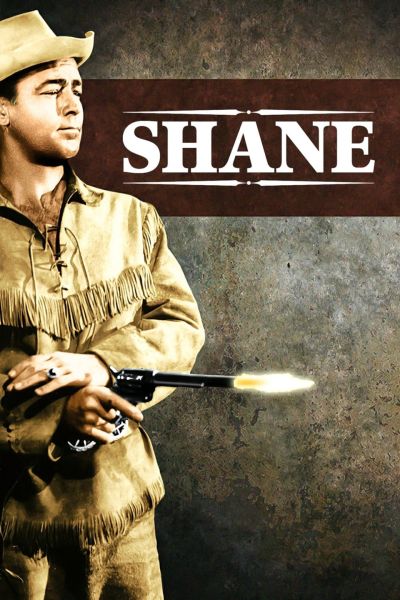Shane

Description:
Shane is a 1953 American Western directed by George Stevens. The story follows a weary, gunslinging drifter who becomes a reluctant protector for a small homestead family caught in a brutal feud with a powerful rancher. Amid the high plains and quiet frontier towns, the stranger forms a wary bond with the land's stubborn matriarch and the boy who longs for a hero. Refracting myth and frontier morality, the film examines loyalty, violence, and the price of standing up for others.Keywords:
American West, Western, Classic Western, Drama, Frontier, GunslingerWhat is the famous line from the movie Shane?
The famous line from the movie "Shane" is "Shane! Come back!" This line is spoken by the character Joey, a young boy who idolizes the titular character, Shane, a weary gunslinger. The line encapsulates the themes of heroism and loss, highlighting Joey's emotional attachment to Shane as he leaves to confront danger. The film, released in 1953 and directed by George Stevens, is a classic Western and is celebrated for its storytelling and performances, particularly that of Alan Ladd as Shane.
Why was Shane the movie so good?
"Shane," directed by George Stevens and released in 1953, is celebrated for its compelling narrative, strong character development, and stunning cinematography. The film masterfully blends themes of good versus evil, heroism, and the struggle for survival in the American West. Alan Ladd's portrayal of the enigmatic gunslinger Shane resonates with audiences, while the supporting cast, including Jean Arthur and Van Heflin, add depth to the story. Its iconic imagery and emotional score enhance the film's impact, making it a classic in the Western genre.
What happened to Shane at the end of the movie?
At the end of the movie "Shane," the titular character, Shane, engages in a final confrontation with the villainous cattleman, Jack Wilson. After defeating Wilson, Shane is mortally wounded. He bids farewell to young Joey, who idolizes him, telling him to "stay away from trouble." Shane then rides off into the distance, bloodied and weakened, symbolizing his departure from the violent life he led. The film concludes with Joey watching Shane leave, embodying the loss of innocence and the impact of heroism and sacrifice.
Is Shane the movie based on a true story?
No, "Shane," released in 1953 and directed by George Stevens, is not based on a true story. It is an adaptation of the 1949 novel of the same name by Jack Schaefer. The film tells the story of a mysterious gunfighter, Shane, who helps a family of homesteaders against a ruthless cattle baron. While the film captures themes of the American West and frontier life, its characters and events are fictional, though they reflect the historical context of the period.
Explore More Categories:
Mockumentary Southern Culture Assimilation Urban Fantasy Fantasy 1970s Creature Feature Evolution Colonialism World Building Escape Romantic Rivalry Introspection Sensory Deprivation Absurdity Conscientiousness Prostitution Romantic Comedy Drama Career Challenges Literary Adaptation Duty Drama Comedy Overpopulation Cybernetics Captivity